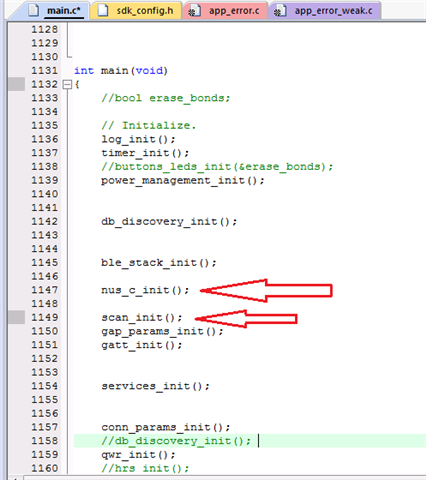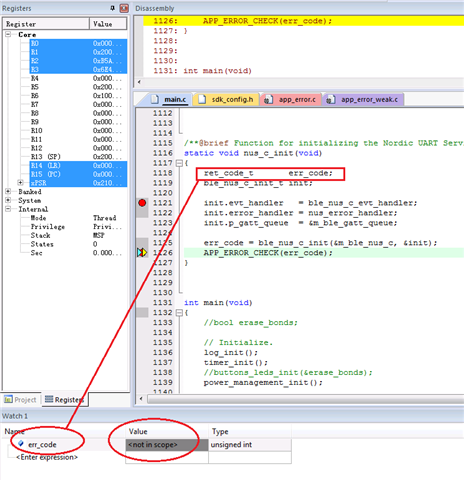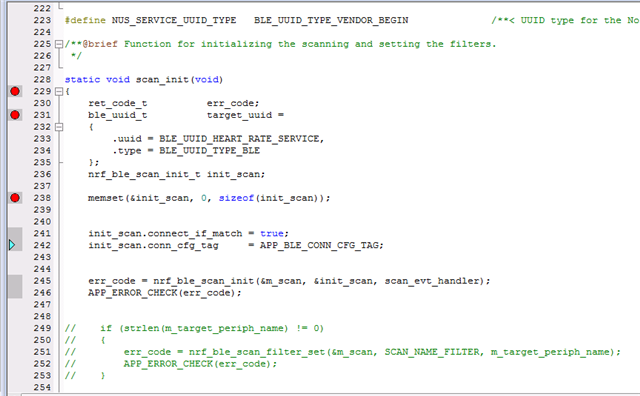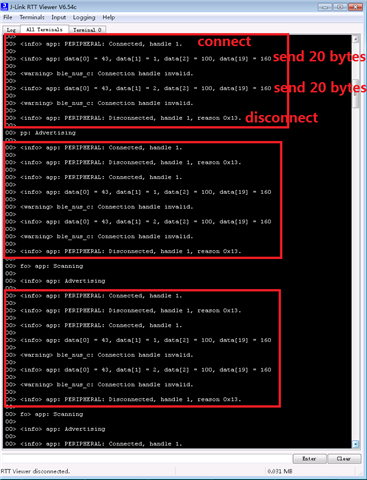Hello Nordic Engineer,
I used nRF52811
nRF5_SDK_17.1.0_ddde560 \ examples \ ble_central_and_peripheral \ experimental \ ble_app_multirole_lesc
After attempting to add NUS, NUS_C, and deleting PEER, and porting to 52811, I encountered an RTC error when running the final RTT.
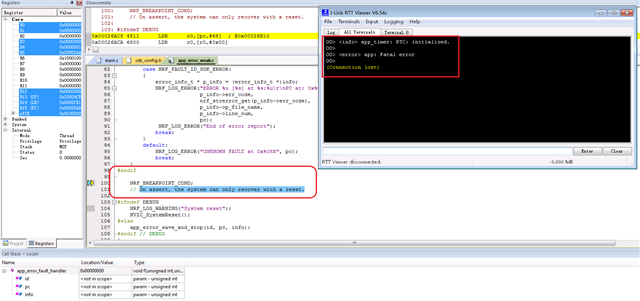
The following image shows the modifications I made for porting to 52811
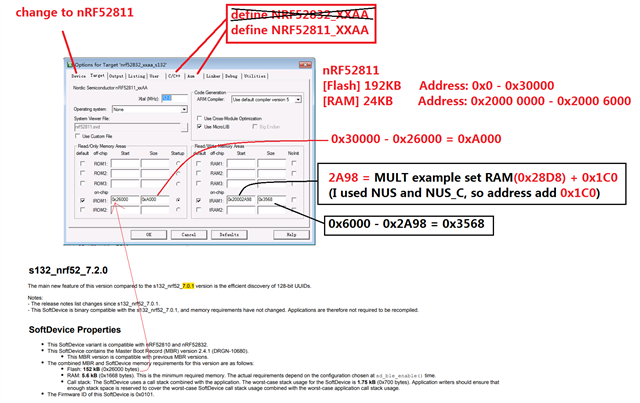
<sdk_config.h>
UART_LEGACY_SUPPORT 0
NRF_BLE_LESC_ENABLED 0
NRF_BLE_LESC_GENERATE_NEW_KEYS 0
NRF_CRYPTO_RNG_STATIC_MEMORY_BUFFERS_ENABLED 0
NRF_CRYPTO_RNG_AUTO_INIT_ENABLED 0
PM_LESC_ENABLED 0
<main.c>
delete ---> err_code = nrf_ble_lesc_request_handler()
Since I don't require the LESC functionality, I hope to have the same connection method as the peripheral UART example.
This is probably all the changes I made. How should I solve the RTC issue?
Thanks



